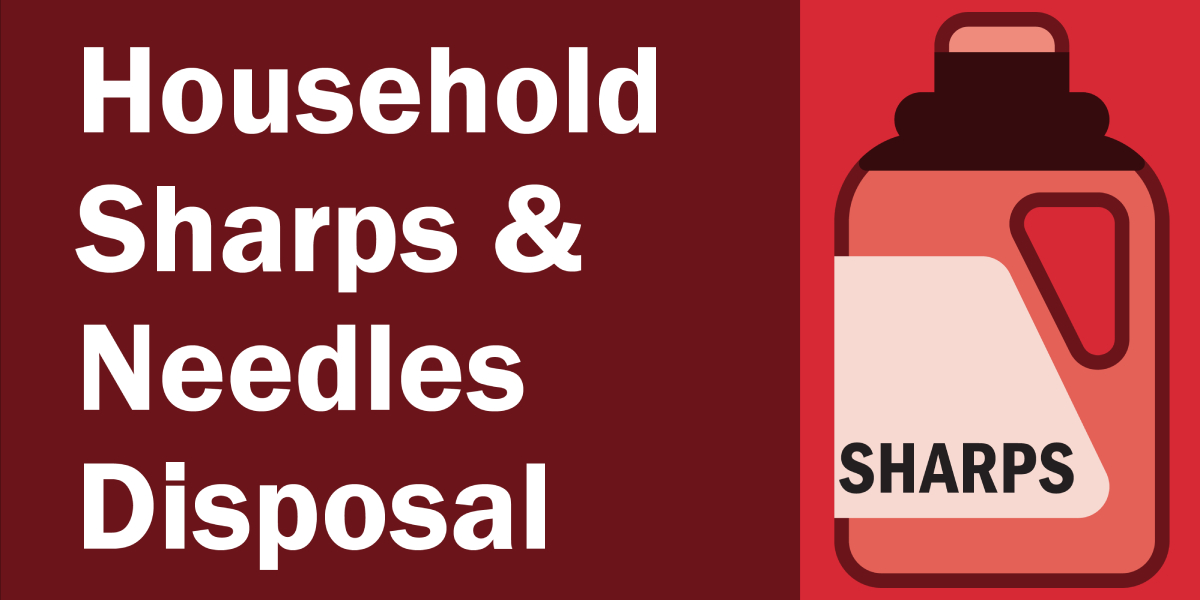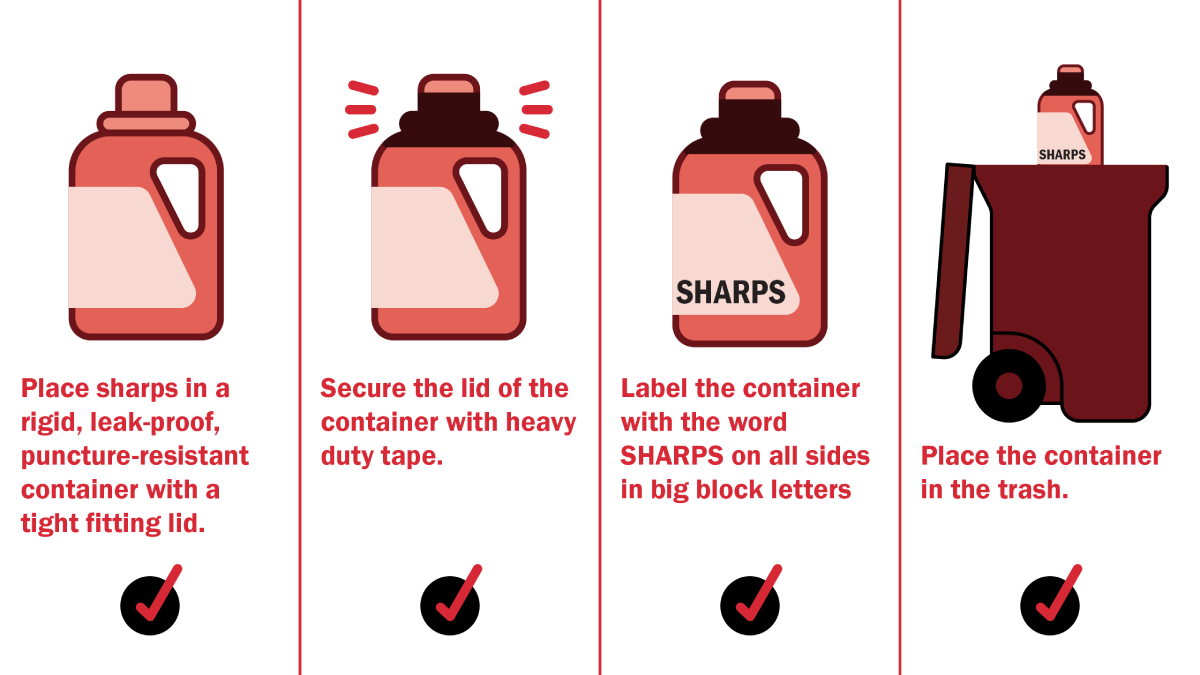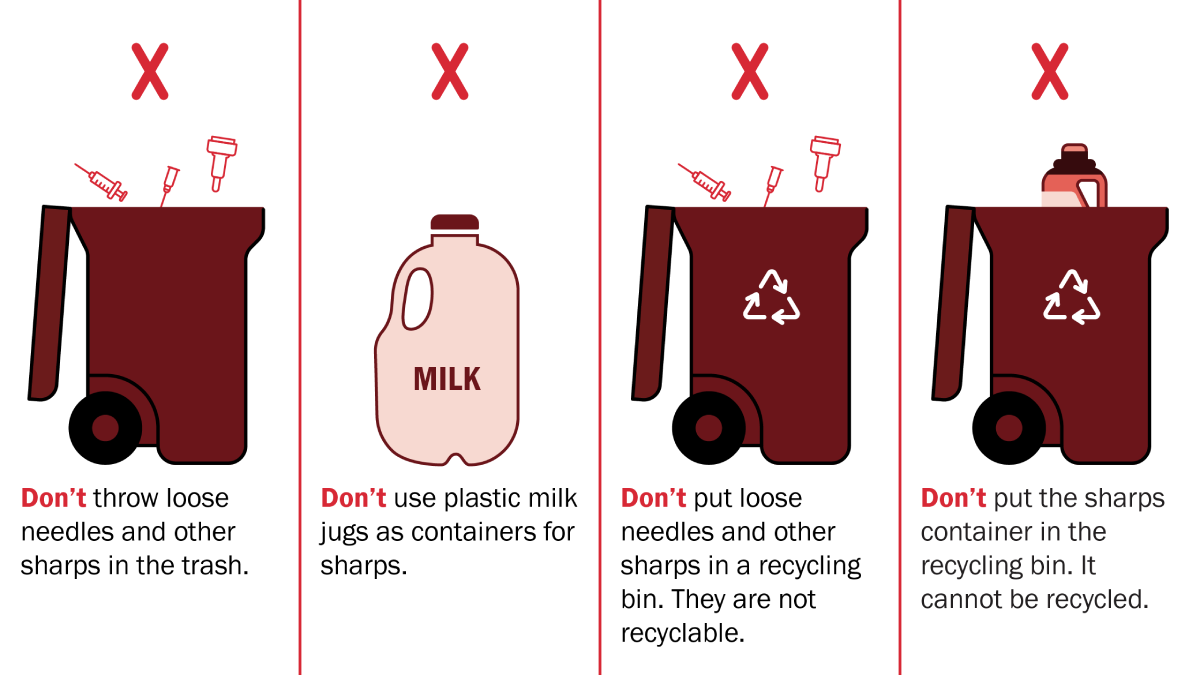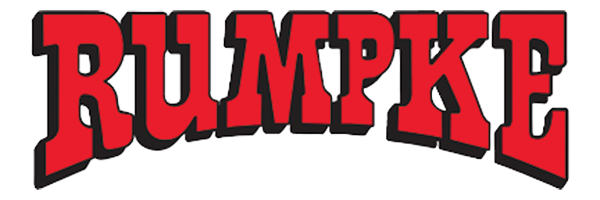According to FDA.gov, "Sharps is a medical term for devices with sharp points or edges that can puncture or cut skin."
Household Sharps & Needles Disposal

In Rumpke's service area, state laws permit the disposal of sharps in the trash when they are used by an individual for their treatment.
It is very important to properly prepare and dispose of household sharps so they aren't a danger to trash collection workers. You probably know that nurses and other health care workers are exposed to potential injury and infection from needles and other "sharps." However, trash and recycling workers are also exposed to these same risks.
What To Do

- Place sharps in a rigid, leak-proof, puncture-resistant container with a tight fitting lid. For example: bottles for laundry detergent, bleach, soda two-liters and coffee cans.
- Secure the lid of the container with heavy duty tape.
- Label the container. Write the word "SHARPS" on all sides in big block letters
- Place the container in the trash.
What Not To Do

- DO NOT put the sharps container in the recycling bin. It cannot be recycled.
- DO NOT put loose needles and other sharps in a recycling bin. They are not recyclable.
- DO NOT throw loose needles and others harps in the trash.
- DO NOT use plastic milk jugs as containers for sharps (they can poke through).
Sharps Disposal FAQs
What are sharps?
What do sharps include?
Sharps include:
- Needles
- Connection needles
- Syringes
- Lancets (also called finger-sticking devices)
- Auto injectors
- Infusion sets
Who is a home sharp user?
An insulin-dependent diabetic or terminally ill individual who is cared for by family members at home may produce sharps waste.
What are other ways to dispose of sharps?
Check with the company or pharmacy where you purchase medical supplies regarding disposal alternatives. Some stores have programs to accept sharps containers for no cost or a small fee. The containers are treated and disposed of. Your local health department may also have more information.
Learn More About Proper Disposal
Rumpke is here to help! We want to make sure all your disposal efforts count to ensure positive environmental benefits for generations to come. Click below to learn more about responsible disposal of hazardous or questionable items.
